- Home
- Winston Groom
The Allies Page 4
The Allies Read online
Page 4
*1 Except, that is, for an excruciating decade when the prince had Randolph effectively banished to Ireland for embroiling him in a scandal involving Randolph’s brother George and the wife of the Earl of Aylesford, with whom His Royal Highness had also had an affair.
*2 The previous Dukes of Marlborough had at times become so strapped for cash to run their palatial estate, Blenheim, that they sold off the family jewels for more than $5 million (in today’s dollars)—and, later, the splendid and (almost) priceless Sunderland Library.
*3 To this day the British remain such a medals-conscious people that in many publications when the recipient of certain medals is mentioned—including his obituary—abbreviations identifying those medals follow the first mention of his name.
*4 Martí was killed in the fighting several months before Churchill’s arrival.
*5 Due to mutual infidelities, the marriage did not last. In the “small world” department, however, it is interesting to note that before she married the duke, Consuelo had been secretly engaged to New York socialite Winthrop Rutherfurd, who afterward married Lucy Mercer, who had been the mistress of Franklin D. Roosevelt.
*6 Sir Bindon was a direct descendant of Colonel Thomas Blood, a notorious Irish troublemaker who in 1671 unsuccessfully attempted to steal the Crown Jewels from the Tower of London.
*7 This injury would give him trouble the rest of his life. Most immediately, he was unable to swing a polo mallet without strapping his right arm to his side. Later, the shoulder would go out at unanticipated times—reaching for a book, swimming. It even went out once when he was making a gesture during a speech in Parliament.
*8 For the past decade and a half, American troops have been fighting in Afghanistan against the great-grandchildren of those same Pashtun tribesmen—men who abetted Osama bin Laden and Al-Qaeda and who remain determined to restore Taliban rule in the country.
*9 In describing how accurate these mountain tribesmen could shoot, Churchill introduced the world to the term “sniper,” which derived from the expression meat hunters of the day used to describe a good shot. Because a snipe is one of the most difficult game birds to hit on the wing—and meat hunters were notoriously stingy when it came to wasting ammunition—to see a man with a string of snipe over his shoulder would often elicit an expression of awe and praise: “There goes a sniper.”
CHAPTER TWO
When word got around of Sir Bindon’s depredations, the entire frontier convulsed in rebellion, including the large and very powerful Afridi tribes farther up in the Himalaya. Finding the pull of battle now irresistible, Churchill spent the next six months angling for a position on the staff of Sir William Lockhart, who was given command of thirty-five thousand men to put down the revolt. Churchill used every resource at his disposal, including his mother. “[S]he left no wire unpulled, no stone unturned, no cutlet uncooked,” he said—but nothing was doing. So he decided to write a book.1
Back with his regiment at Bangalore, Churchill began assembling the dispatches he had sent to the Daily Telegraph into a workable manuscript. Within three months he had produced a passable draft and sent it back to England for his mother to sell, which she did with a publishing house called Longman. The Story of the Malakand Field Force was received with mostly highly complimentary reviews.*1 Churchill showed “a wisdom and comprehension far beyond his years,” said one critic. He even received a praiseful note from His Royal Highness the Prince of Wales, who said, “I have read it with the greatest possible interest…Everybody is reading it.”2
To his shock and delight, Churchill discovered that the small book he wrote had earned him more money in a few months than two years’ worth of pay in the army. He decided to remain in the army only long enough to write about other British wars that were heating up around the world, among them, Sir Herbert Kitchener’s punitive expedition to Khartoum in the Sudan.
On leave in London, Churchill began to press for an assignment with General Kitchener’s army. However, as he had discovered in India, choosing his own assignment was easier said than done, especially when a reputation precedes you—and Kitchener didn’t want any part of him. Through his politicking, Churchill now fully realized that he was making a lot of enemies, which would in fact become a lifelong avocation. Interestingly, this never seemed to bother him; even at this early age, his self-confidence was supreme. Nor did he seem to feel an animus toward these enemies, but instead sought to make them friends: the mark of a good statesman. He would continue to make enemies later in life, even during his greatest, most powerful days, but he always seemed to wish them well. To his enemies, this was maddening.
Through family connections he secured the command of a cavalry troop with the 21st Lancers, which was headed for Africa. His mother, an old friend of Kitchener, wrote to the general himself, but she was rebuffed. Undaunted, Jennie actually took off for Cairo to “get closer to” the sirdar, as Kitchener was known in his capacity as the head of the Egyptian army. She also brought along one Major Caryl John Ramsden, her present lover. Not only did Kitchener refuse to see her, but she returned one day unexpectedly to her suite in the Cairo Hotel to find her major in the embrace of the wife of Colonel Sir John Grenfell Maxwell, the sirdar’s nephew. Her remonstrations on that occasion were so vehement they reverberated all the way back to London into the ears of the Prince of Wales, who admonished her with a note: “You had better have stuck to your old friends than gone on your expedition to the Nile! Old friends are the best.”3
Then a great stroke of luck swung Churchill’s way. The British prime minister Lord Salisbury—the same Lord Salisbury who years earlier had fired Churchill’s father—summoned young Winston to his chambers. He had read The Malakand Field Force and was greatly impressed. Salisbury told Churchill that the book gave him insights into the military actions in India no army field report could match. He said to Churchill at the end of a half-hour audience, “If ever there is anything I can do for you, pray let me know.”
Several days later Churchill asked Salisbury’s private secretary if the prime minister could put in a good word for him to Lord Kitchener. The word was duly put and the response duly received: No! Even the great man himself could not move the indomitable sirdar.
Churchill had one last card, and he played it beautifully. Through an old friend of the family, he learned that Sir Evelyn Wood, the adjutant general of the army, was displeased with Kitchener for choosing his own officers over the recommendations of the War Office. The friend, Lady St. Helier, was close to Sir Evelyn, and Churchill suggested that she communicate with him the prime minister’s desire for Churchill to be included in the Sudan expedition. Two days later he received a communication from the War Office attaching him to the 21st Lancers with orders to proceed immediately to Cairo. He departed the next morning with an agreement at £15 per column*2 to cover the war for the Morning Post. The War Office communiqué laconically specified that if Churchill were to be killed during the battle, “It is understood that…no charge of any kind would fall on British Army funds.”4
* * *
THE TROUBLE IN THE SUDAN (or Soudan, as the British spelled it then) had begun nearly twenty years earlier, when a Muslim fanatic named Muhammad Ahmad proclaimed himself to be the Mahdi, “the chosen one,” or leader throughout the Muslim world. He persuaded a sect of Islamists called Dervishes to revolt against the Anglo-Egyptian authority that had ruled them for sixty years. They in turn laid siege to various isolated Egyptian garrisons until they effectively controlled most of the outlying country, which was then a British protectorate.
Alarmed, the khedive of Egypt sought help. General Charles G. “Chinese” Gordon, a highly respected officer who had previously served as the Sudan’s governor-general, answered his call. When Gordon arrived in the fortress capital of Khartoum he was appalled. Inside the fortress, situated at the confluence of the Blue and White Niles, were some seven thousand Egyptian so
ldiers and twenty-seven thousand civilians. Outside, laying siege, was the sixty-thousand-man Dervish army.
Gordon soon received word from the British and Egyptian authorities in Cairo that the Sudan was to be abandoned to the Dervishes, but nobody knew how to get the Egyptian troops back north without them being slaughtered. The liberal government of Prime Minister William Gladstone dithered in Parliament about sending a relief column to rescue Gordon. At last it arrived, two days too late; Khartoum had been captured and the entire Egyptian army garrison, including Gordon and four thousand of the civilian population, had been butchered.*3
That was in 1885. There was much criticism of Gladstone, and when at last the Conservatives came back into power they vowed to restore British honor by sending an army to the Sudan to defeat the Dervishes and avenge General Gordon’s death.
Churchill, now twenty-three years old, arrived in Cairo toward the end of July 1898. Half the 21st Lancers—about two hundred strong—had already started up the Nile, and his squadron was due to leave in the morning. A cavalry troop had been reserved for Churchill, but his delay had caused another officer to be assigned. (“Fancy how lucky I am,” wrote Lieutenant Robert Grenfell to his family. “Here I have got the troop that would have been Winston’s, and we are to be the first to start.”*4)
It was twelve hundred miles from Cairo to the Sudan, where the Dervish army waited. The troop traveled on stern-wheeled steamers up the Nile, then by rail laid down by Kitchener’s twenty-thousand-man force for resupply—and at last, two hundred miles across the desert by horseback. At least Churchill had friends in the 21st Lancers—classmates from Harrow and from other walks of his life—unlike his stint with the Bengal Lancers, which had been in India forever and where he had known no one.5
As they neared Khartoum, cavalry troops scouted ahead for the enemy. All they saw were mirages, scrub thorn, and the awful heat of the desert, which they could actually see shimmering in the distance. Soon the soldiers began to speculate that the Dervish army had disbanded. Then, on the last day of August, Churchill dined with some British friends in the officers’ mess of the Sudanese Battalion. “They are all there,” the officers informed him. These men had been fighting the Dervishes for a decade. The next morning Churchill’s troop was riding in support of the advanced cavalry screen when people began seeing “white patches” and “gleams of light” among the mirage, Churchill said. The troopers rode forward with growing tension and excitement.
Then a lieutenant rode back and announced that the enemy was in sight.
“Where?” Churchill asked
“There, can’t you see?” He pointed to a long brown smear in the desert. Others began to come back, including the squadron commander, who took Churchill to the regimental commander. The enemy was “coming on pretty fast,” Churchill said. The colonel told Churchill to have a good long look for himself, and then get the word directly to General Kitchener, who was with the infantry.6
After confirming sight of the enemy, Churchill crossed six miles of desert, where he found Kitchener riding alone in front of his staff and the mass of infantry that made up the British force. He brought his horse in a semicircle in front of the sirdar, then came up from behind him on his right side and saluted, wondering if he’d been recognized. Kitchener nodded for him to proceed with his report and then asked, “How long, do you think, have I got?” After some rough calculations Churchill replied that he had about an hour and a half. Kitchener nodded, a signal that the conversation was at an end.7
Churchill had lunch with the army intelligence director Sir Reginald Wingate, who received him warmly, interested of course in the news he had brought. The mood among the staff was high, Churchill said. Nobody expected to be killed in the Sudan, he observed. It wasn’t like the Great War, he wrote long afterward, where everyone expected to be killed.8
* * *
THE DERVISH ARMY did not attack that day but drew up several miles before Kitchener’s host and commenced a great howl before settling in for the night. “We young men who lay down to sleep that night within three miles of 60,000 fanatical Dervishes…we may be pardoned if we thought we were at grips with real war,” Churchill later reflected.9
They were up the next morning a little after 4 a.m. Churchill’s squadron commander gave him a special mission to lead a six-man patrol to reconnoiter a rocky ridge called Jebel Surgham about a mile south. Dawn began to break as they reached the ridge, and at last the veil of dark was lifted, revealing “these enormous black smears” of thousands of men, “and the shimmering and the glinting of their weapons.” Churchill handed a communiqué with the enemy position to a corporal with instructions to ride like the wind to Kitchener, whose reply soon came back: “Remain as long as possible and report how the masses of attack are moving.”
A deadened roar, a kind of cheering sound, swept over the desert and up over the ridge, “like the sound of the sea,” as Churchill picked his way down the west slope, nearer to where the Dervish army was marching. Its gigantic mass glittered with weapons—spears, lances, swords, rifles, knives, axes, and picks. The army was led by bearers of hundreds of colorful silk flags embroidered with verses from the Koran. “We see for ourselves what the Crusaders saw!” Churchill marveled.
Then a crashing boom announced the opening of Kitchener’s artillery barrage, which sent scores of high-caliber shells air-bursting over the heads of the advancing Dervish army. Hundreds of men went down “in shapeless heaps, some jumping, some tumbling,” leaving great gaps in their ranks and their banners. The artillery fire was constant and soon joined by the huge shells from the navy gunboats that could kill a hundred men in a single burst. By now thousands of Dervishes were dead or dreadfully wounded.
Informed by the squadron commander of incoming infantry fire, Churchill and his troop took shelter from the battle by the steep banks of the Nile. But he could see the cannon boom from the gunboats and hear the crash of the artillery batteries as they decimated “the pride and might of the Dervish Empire…on this, its last day of existence.” Then the Maxim guns opened up—all fifty of them—each spitting out six hundred bullets per minute at its maximum rate of fire, filling the air with up to thirty thousand pieces of lead as each minute passed. The power was so overwhelming it prompted the prolific poet and Parliamentarian Hilaire Belloc to compose a bit of doggerel:
Whatever happens, we have got
The Maxim gun, and they have not.
Then the infantry opened fire—their twenty thousand Lee-Enfield rifles, shoulder to shoulder, with a maximum rate of aimed fire at thirty shots per minute—that would theoretically put another half a million bullets in the air during any given minute if they were firing all together, which of course they weren’t. But the sheer number of deadly missiles to which the Dervish army was exposed was almost unfathomable.
Nonetheless on they came. Banners went down, and men with them. Others seized the flags and brought them forward, only to go down themselves. They got within a thousand yards of the Anglo-Egyptian lines and began to waver but were rallied by emirs on horseback and came on again. This time, their attack came to within seven hundred yards—but the withering fire was too much.
The Dervishes broke into retreat, leaving some seven thousand of their number crumpled dead or wounded on the ground. But the emirs coaxed them back into formation, still over fifty thousand strong, this time getting to within a hundred yards before they wavered and “dissolved into fragments…and streamed away into the fantastic mirages of the desert.” Twenty thousand of their casualties lay on the ground “in heaps, like snowdrifts.”
Kitchener’s plan was to keep driving the Dervishes into the desert, and he now ordered the battalions to assemble for a march on Omdurman itself. It was the cavalry’s job to keep the Dervishes from the city. Kitchener sent orders for the 21st Lancers to move out ahead and screen the army’s march. This prospect excited the officers and many of the men, because for one rea
son or another the regiment had never been in battle since its inception in 1858. Wags in other outfits wondered aloud if the Lancers’ motto was “Thou Shalt Not Kill.”10
The regiment moved out at a trot and reached Jebel Surgham where, mounting a lower point, Churchill could see the entire plain of Omdurman spread out before them. Now they formed a “column of troops,” with each of the regiment’s sixteen troops of twenty or twenty-five men riding each behind the other, strung out for nearly a mile. “Everyone expected to make a charge,” Churchill said; they had talked of little else since leaving Cairo. The trumpet blew “right wheel into line” and the entire formation swung around to face the enemy riflemen. No order was given to charge; it was understood. With a whoop everyone spurred his charger and plunged forward hell for leather at breakneck speed.
The bloody affair following the charge was measured in minutes. Churchill saw one of his troopers dragged from the saddle and hacked to pieces. The battle had broken into hundreds of personal combats. Churchill himself trotted up to individual Dervishes and shot them in the face, killing at least three. He realized his troop had broken up and that the regiment was trying to re-form about a hundred yards away. He spurred his horse out of a ditch and wheeled toward his comrades.
Now, riderless horses returned, “some spouting blood, struggling on three legs, men staggering on foot, bleeding from terrible wounds, fishhook spears stuck right through them.” Churchill recalled a sergeant trying to organize his troop after the charge: “His face was cut to pieces, and as he called on his men to rally, the whole of his nose, cheeks and lips flapped amid red bubbles.” Churchill shot a Dervish who had suddenly popped up from a hole in the ground. “How easy to kill a man! But I did not worry about it,” he wrote later. He asked one of his sergeants if he had enjoyed himself. “Well, I don’t exactly say I enjoyed it, Sir,” the sergeant replied, “but I think I’ll get more used to it next time.”11

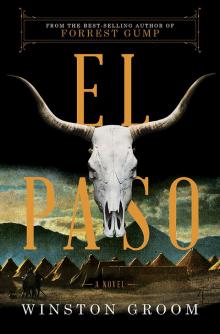 El Paso
El Paso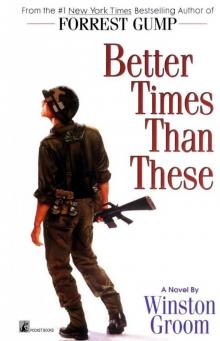 Better Times Than These
Better Times Than These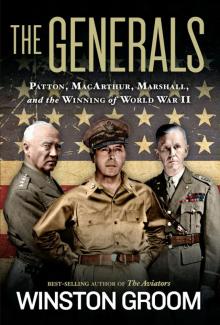 The Generals
The Generals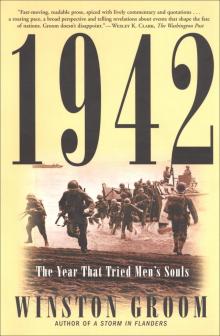 1942: The Year That Tried Men's Souls
1942: The Year That Tried Men's Souls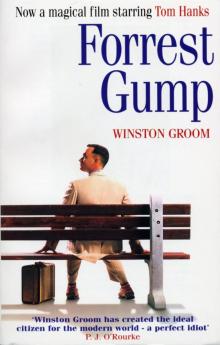 Forrest Gump
Forrest Gump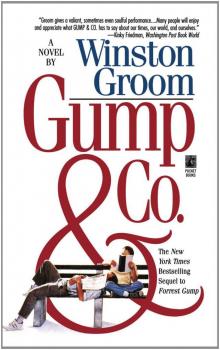 Gump and Co.
Gump and Co.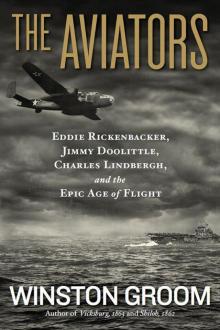 The Aviators
The Aviators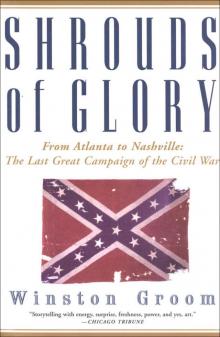 Shrouds of Glory
Shrouds of Glory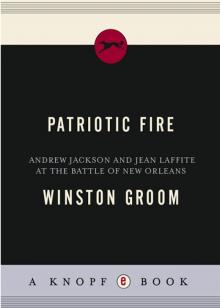 Patriotic Fire
Patriotic Fire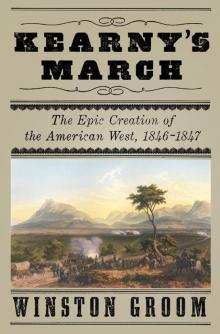 Kearny's March
Kearny's March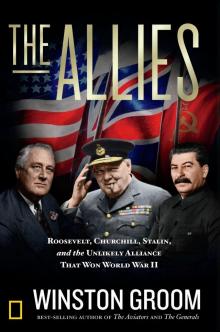 The Allies
The Allies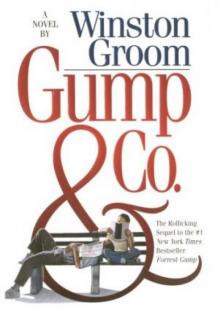 Gump & Company fg-2
Gump & Company fg-2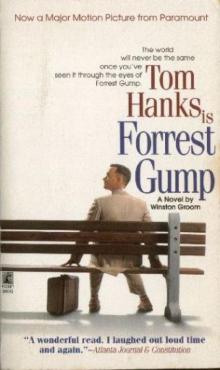 Forrest Gump fg-1
Forrest Gump fg-1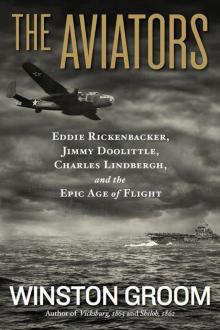 The Aviators: Eddie Rickenbacker, Jimmy Doolittle, Charles Lindbergh, and the Epic Age of Flight
The Aviators: Eddie Rickenbacker, Jimmy Doolittle, Charles Lindbergh, and the Epic Age of Flight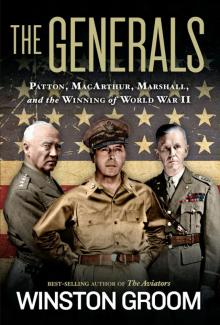 The Generals: Patton, MacArthur, Marshall, and the Winning of World War II
The Generals: Patton, MacArthur, Marshall, and the Winning of World War II